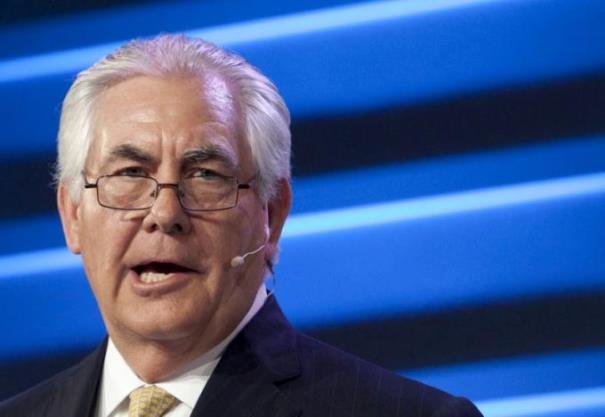U.S. says Iran complying with nuclear deal, yet vows inter-agency review

TEHRAN – In a press statement on Tuesday, the U.S. Department of State notified the Congress that Iran is complying with the nuclear deal, the very first such notification under the Trump administration.
“The U.S. Department of State certified to U.S. House Speaker Paul Ryan today that Iran is compliant through April 18th with its commitments under the Joint Comprehensive Plan of Action,” Secretary of State Rex Tillerson said in a letter to Paul D. Ryan, speaker of the House of Representatives.
Iran and the 5+1 group - the U.S., Britain, France, China and Russia plus Germany - finalized the text of the nuclear deal in Vienna in July 2015. It went into effect in January 16, 2016.
The accord put some limits on Iran’s nuclear program in exchange for the lifting of economic and financial sanctions against the country.
Under the deal, the State Department must notify Congress every 90 days on Iran's compliance under the so-called Joint Comprehensive Plan of Action (JCPOA), the official name for the nuclear accord.
While admitting that Tehran has honored the accord fully, Tillerson noted: "President Donald J. Trump has directed a National Security Council-led interagency review of the Joint Comprehensive Plan of Action that will evaluate whether suspension of sanctions related to Iran pursuant to the JCPOA is vital to the national security interests of the United States," Tillerson further said, giving no more details.
During his presidential trail, Trump attacked the deal vehemently, branding it the agreement "the worst deal ever negotiated” and vowed to “rip up” it.
In an apparent reversal, later on Trump softened his tone, saying that he would "police that contract so tough they don't have a chance."
As part of the nuclear accord, the U.S. has committed to provide sanctions relief if Iran meets its obligations and the secretary of state will retain the authority to waive all nuclear-related sanctions authorized by the legislation.
If the Trump administration tries to alter the deal or to re-impose sanctions, it could prompt Iran to violate a range of obligations, like the disabling of nuclear facilities and the sharp limits on reprocessing uranium. That, in turn, could unwind the deal, and with it, President Obama’s signature foreign policy achievement.
For Trump, the nuclear agreement will pose an early test between the pull of his campaign statements and the push of political realities.
In an interview with the BBC, former CIA director, John O. Brennan, said that ending the agreement would be “disastrous” and “the height of folly.”
Soon, President Trump must decide whether to extend executive order waivers the Obama administration used to suspend some of the non-nuclear sanctions imposed on Iran and how scrupulously to hold Iran to account for infractions of the JCPOA.
The test of that will come on May 19, when the president must decide whether to extend executive waivers that the Obama administration used to suspend some sanctions.”
On March 1, 2017, Laurence Norman of the Wall Street Journal reported that European officials are growing in confidence President Trump will not shred the nuclear accord.
Positive signs are emerging, which make it costly for the U.S. to unwind the deal.
Early April, the American plane maker Boing said it had agreed to sell $3 billion in airplanes to an Iranian airline, deepening the American manufacturer's bet on the Iranian market following the lifting of sanctions.
The company agreed to sell 30 units of the 737 MAX aircraft to Aseman Airlines, which also acquired the rights to buy another 30 at a later date.
Days before, media outlets said the first new Boeing commercial jetliner could be delivered in a month.
People familiar with the issue say the Boeing deal will be one reason they think Trump will be forced to honor the deal given the number of jobs it creates in the U.S.
According to the U.S. Department of Commerce, an aerospace sale of this magnitude creates or sustains approximately 18,000 jobs in the United States.
In February, Trump toured a Boeing plant in February and touted the firm's work as proof of a coming American manufacturing renaissance.
NA/AK/PA
Leave a Comment